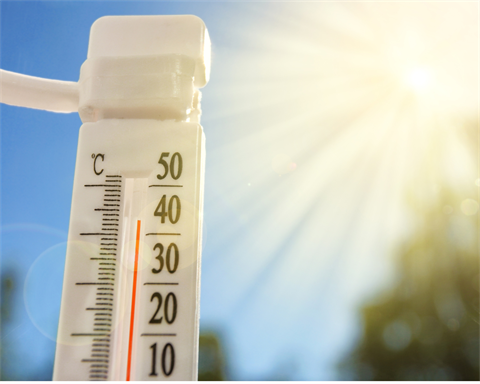Heat Health

Extreme heat or heatwave is a period of unusually and uncomfortable hot weather that could negatively affect human health. Extreme heat can also affect community infrastructure such as power supply and other services. Extreme heat can affect everyone; however, some people are more vulnerable such as the elderly, young and those already ill.
A system has been developed by the Victorian Health and Human Services (the department) to notify organisations, groups and individuals when extreme heat or heatwaves are likely to negatively affect human health.
Heatwave Threshold
Through monitoring the Bureau of Meteorology’s 7-day forecast maximum and minimum temperature. When the heat health temperature threshold is reached for a specific weather forecast district, a heat health alert is issued.
The heat health threshold is worked out by adding the maximum daytime temperature and minimum night time temperature and then dividing it by two. For example Daytime maximum of 39⁰C and a minimum night time temperature of 21⁰C, 39 + 21 = 60 /2 = 30⁰C
In the South West weather forecast district, a heat health temperature threshold of 30⁰C. When this threshold is reached a public alert will be issued.
Tips to survive the heat
During extreme heat it is easy to become dehydrated or for your body to overheat. If this happens, you may develop heat cramps, heat exhaustion or even heatstroke. Extreme heat can also make existing medical conditions worst.
With some forward planning and smart thinking you can help ensure you, your family and pets cope with and remain healthy during the heat.
- Drink plenty of water, even if you don’t feel thirsty.
- Keep yourself and family cool by using wet towels, putting your feet in cold water and taking cool showers.
- Stay in cool and air-conditioned buildings as much as possible (shopping centres, libraries, cinemas and community spaces).
- Block out the sun at home using blinds and curtains.
- Stay out of the sun during the hottest part of the day.
- Wear a hat and light-coloured, loose-fitting clothing made from natural fibres.
- Avoid heavy activity like sport, renovating and gardening.
- Ensure pets have shade, cool place and plenty of cool water.
- Leave water out for birds and native animals.
- Watch or listen the news reports to ensure remain informed.
Heat stress and heat –related illness
Heat stress – preventing heat stroke
Heat stress and exercise
How to cope and stay safe in extreme heat - brochure
Watch out for others
The young, elderly and those with medical conditions can be at higher risk to heat related illnesses, as well as those who are isolated and living alone. It’s important that we check on these members of the community to ensure that they are ok during extreme heat and heatwaves.
Heat Stress and older people
- Keep in touch with sick or frail friends and family.
- Encourage them to drink plenty or water and stay indoors.
- Help by doing their shopping or running errands so they can avoid the heat.
- Take them to cool places for the day or have them stay overnight if they are unable to stay cool in their homes.
- Ensure that they turn on their coolers and fans.
- If you observe symptoms of heat-related illness, seek medical help.
Prepare for extreme heat
- Stock up of food, water and medicines so you don’t have to go out in the heat.
- Store medicines safely at the recommended temperature.
- Check that your fan or air conditioner works well and has been serviced.
- Prepare your home by installing blinds, outside window coverings, shade cloths or external blinds on the sides of the houses facing the sun.
Prepare for power failure
Extreme heat, heatwaves and fires can put pressure on power supply and cause disruption to supply, you need to be prepared.
- Ensure you have a torch, fully charged mobile phone, a battery operated radio and some spare batteries.
- Stock up on food items that do not require refrigeration or cooking.
- Have plenty of drinking water available.
- Stock up of medication and other essential items.
- Consider a battery operated or handheld fan to assist with cooling.